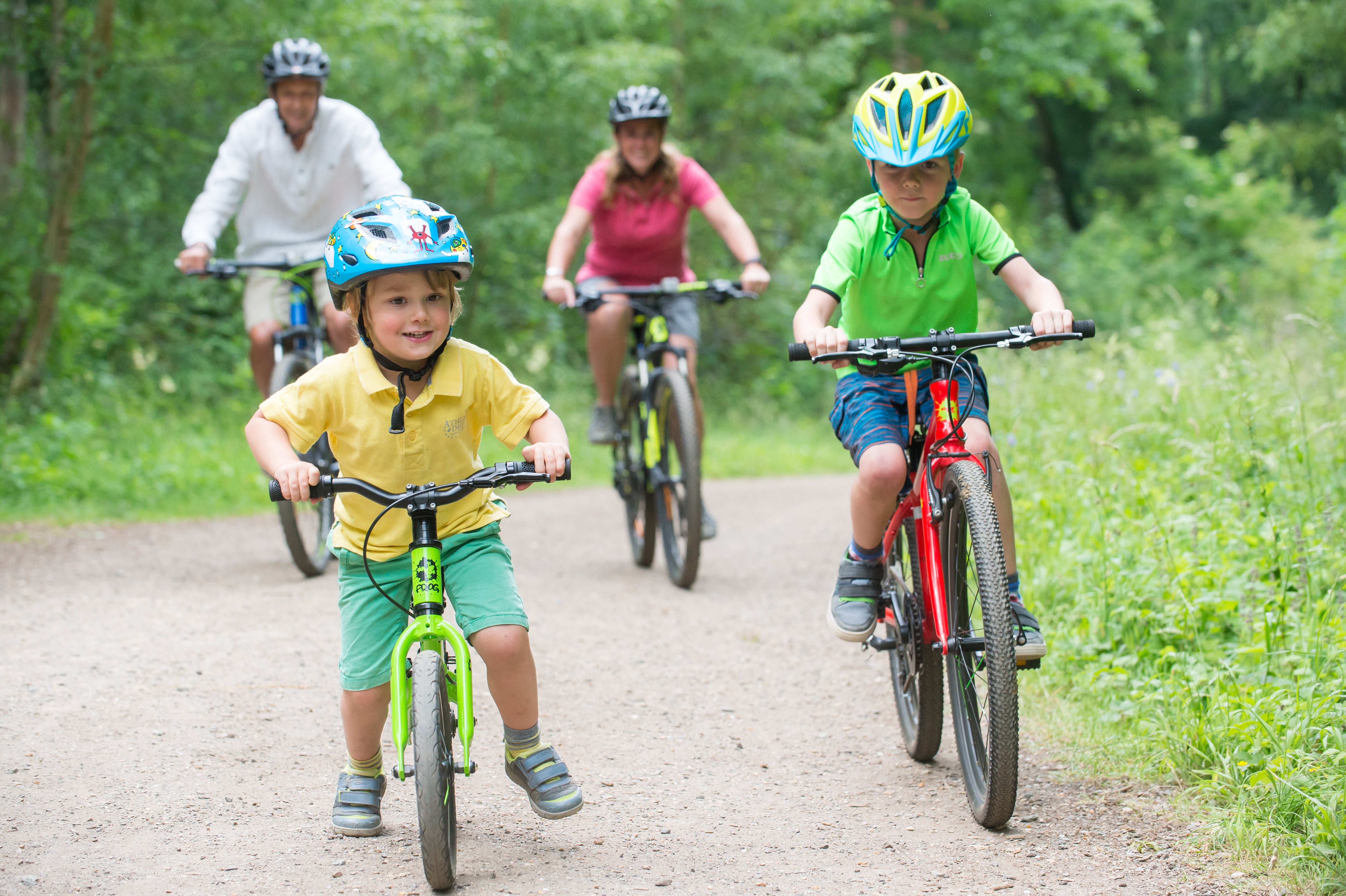How a subscription service for kids’ bikes is making cycling more accessible to everyone
The Bike Club wants to put an end to the rusty kids’ bikes in the shed, and make sure as many families as possible have access to high-quality cycling for their children with their ‘pay-as-you-grow’ subscription service, writes Sean Russell


Sometimes it can feel like you’re forever buying your child a new bike. Not long after you buy a new one, they seem to have grown yet again and then it’s time to buy another, and another, and another until they eventually – mercifully – become adults.
It’s normal to want our kids to be riding their bikes. We all remember that feeling of getting a new bicycle for Christmas – and getting out and active right now is more important than ever. But it adds up and for some parents the costs mean not being able to get their child cycling at all or having them ride the wrong size or type of bike.
The Bike Club, set up in 2016 by Alexandra Rico-Lloyd and James Symes, is trying to change this. With their subscription-based system, you pay a monthly fee for a high quality, well-maintained bicycle and when the child grows out of it, you simply swap it for a bigger one.
“We realised with the kids’ bike sector there’s this huge need for being able to exchange your bike as you grow,” says Symes, “and it meant you get a much better-quality bike. Opening up cycling to a much broader set of families for us was really exciting to be able to bring more people into cycling.”
So how does it work? You go to the Bike Club website and use the “bike finder” tool and take a few measurements – inner-leg is best – or put in the age of your child. The website will then suggest bikes. After a quick onboarding process (including a fraud and soft credit check) you pay your first month and within two to four days the bike will arrive. If you choose the premium option there will be a two-man delivery who will drop the bike off, give you advice on setting it up, and then take all the packaging away. When your child grows out of it, you log in again and arrange an exchange. It’s as simple as that.
They now have over 23,000 members riding Bike Club bicycles and growing with them. In theory you could join the Bike Club when your child is one and continue the subscription into their mid-teens, with prices starting as low as £3.50 per month for a balance bike.
“The difference between bike quality is even more prevalent with kids bikes than adult bikes,” says Symes. “If you ride a big heavy box bike, it weighs half as much as the child whereas a Frog or a Forme bike has a much better power-to-weight ratio and gives them a much better ability to go riding.”
Symes’s background is in accountancy and finance, having worked in business strategy, growth and lending with some of the biggest companies in the world, while Rico-Lloyd’s background is in IT. But it was Rico-Lloyd that took the first jump into the Bike Club.
“I’m more of the typical entrepreneur to James, so I’m the one that left full-time work first to run the company for a couple of years before James came on board,” she says.
How did they both meet? They answer in perfect unison: “Tinder.”
“We met 2015 or 2014,” says Symes. “It wasn’t even Alex who swiped right, it was her brother. So I was lucky to get a date in. Then it went from there, we’re now married and we also have a young family.”
Rico-Lloyd refers to the early days of setting up the Bike Club as “the lonely years”. The business operated out of their third storey flat, meaning the entrepreneur had to lug the bikes up and down the stairs for delivery and dispatch, taking care of every aspect of the business.
Seeing these pictures of kids enjoying themselves and learning a new skill in lockdown has kept the team going
“It is really difficult to keep yourself motivated working alone,” says Rico-Lloyd. “We even had three employees come to work out the flat at one point. But when we went into a shared workspace it was a game changer. You were able to meet other entrepreneurs and are then able to bounce ideas around. I would recommend that to anyone who starts a business.”
Since then business has boomed. They have recently secured £5.7m in funding and early investors include Mike Balfour, founder of Fitness First, and James Jack, of Pure Gym. They aim to increase their fleet of bikes to 150,000 over the next three years.
As well as this they now have a 25,000-square-foot warehouse and workshop in Rainham for storage and bike building and maintenance. They know that the bikes will go through the usual wear and tear that is associated with kids’ bikes and say that it’s better that members let them know if anything is broken when exchanging the bike so it can be fixed as quickly as possible and sent out again.
This circular economy is a main aim of the Bike Club. Instead of throwing out a bike when you’re finished with it, or letting it rust in the shed, the Bike Club will refurbish the bike and send it out again to another member in need of that bike. In fact, a lot of the members prefer the refurbished bikes because they worry less about denting or scratching an already used bike.
“We really want to make sure we’re staying true to that idea of a sustainable and responsible future as opposed to just a super high consumption future,” says Symes.
The coronavirus pandemic has been a testing time for the couple and their family, as they balance work and childcare like so many other families around the country. But the boom in cycling has helped their business further, and, perhaps more importantly, their members have been so grateful to the Bike Club. Some members have even sent in photos and videos of their kids riding Bike Club bikes.
“We’ve been referred to as a lifeline by so many now and seeing these pictures of kids enjoying themselves and learning a new skill in lockdown has kept the team going and they have worked really hard, especially in the warehouse,” says Rico-Lloyd.
“Being able to be a relevant good that is able to get people outside and give them a semblance of normality and a bit of enjoyment in what is a tough time, that’s a really rewarding place to be,” says Symes.
As the Bike Club expands it is looking not only to provide bikes, but also get involved in campaigns to get more and more children cycling – this includes safe school streets and building bike sheds for schools. This is a vital part of what the Bike Club is about.
“We’re all about making cycling more accessible,” says Rico-Lloyd. “So it’s making good quality bikes easily accessible to people who may not normally be able to afford it, and educating people in the best way to get their child to cycle, and making cycling more accessible by introducing school streets so that people can ditch the car, and also in terms of being able to cycle to school safely and have somewhere to put it.
“Obviously it’s lovely watching growth and sales and all that stuff but when you get photos of children really enjoying the bikes and you actually see the happy memories that are created in people and that's awesome. It’s pretty satisfying, much better than accountancy, put it that way.”




Join our commenting forum
Join thought-provoking conversations, follow other Independent readers and see their replies
Comments